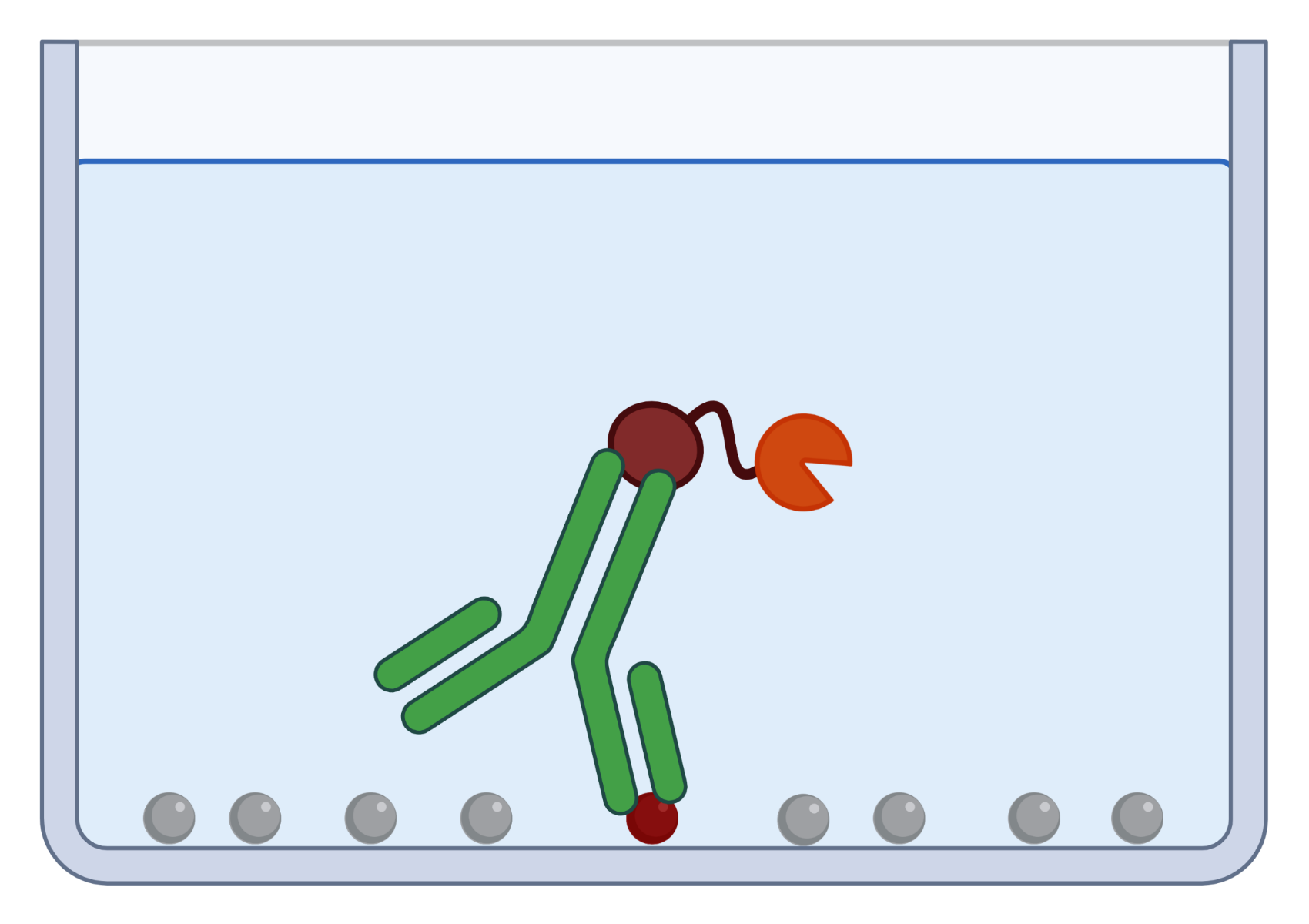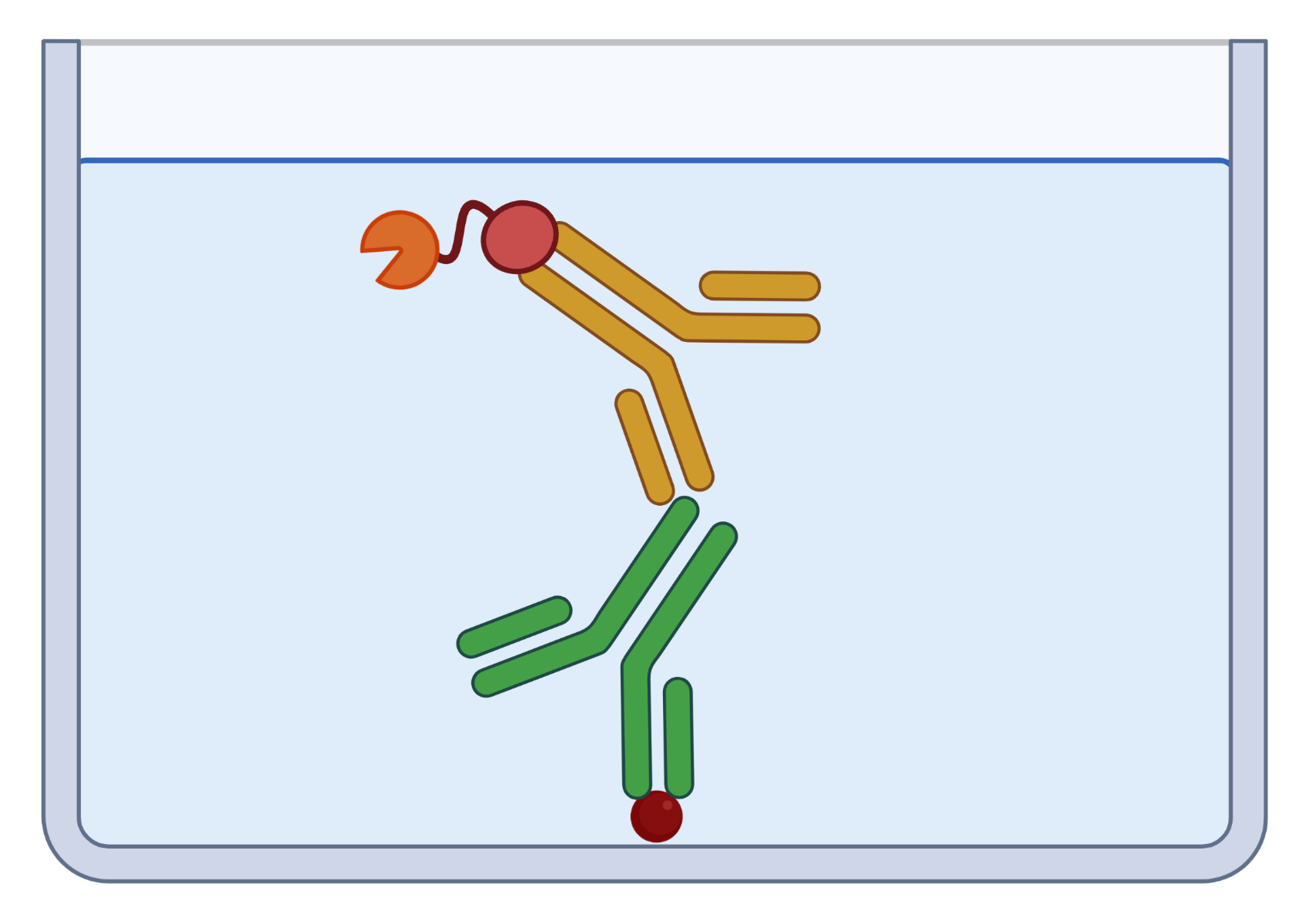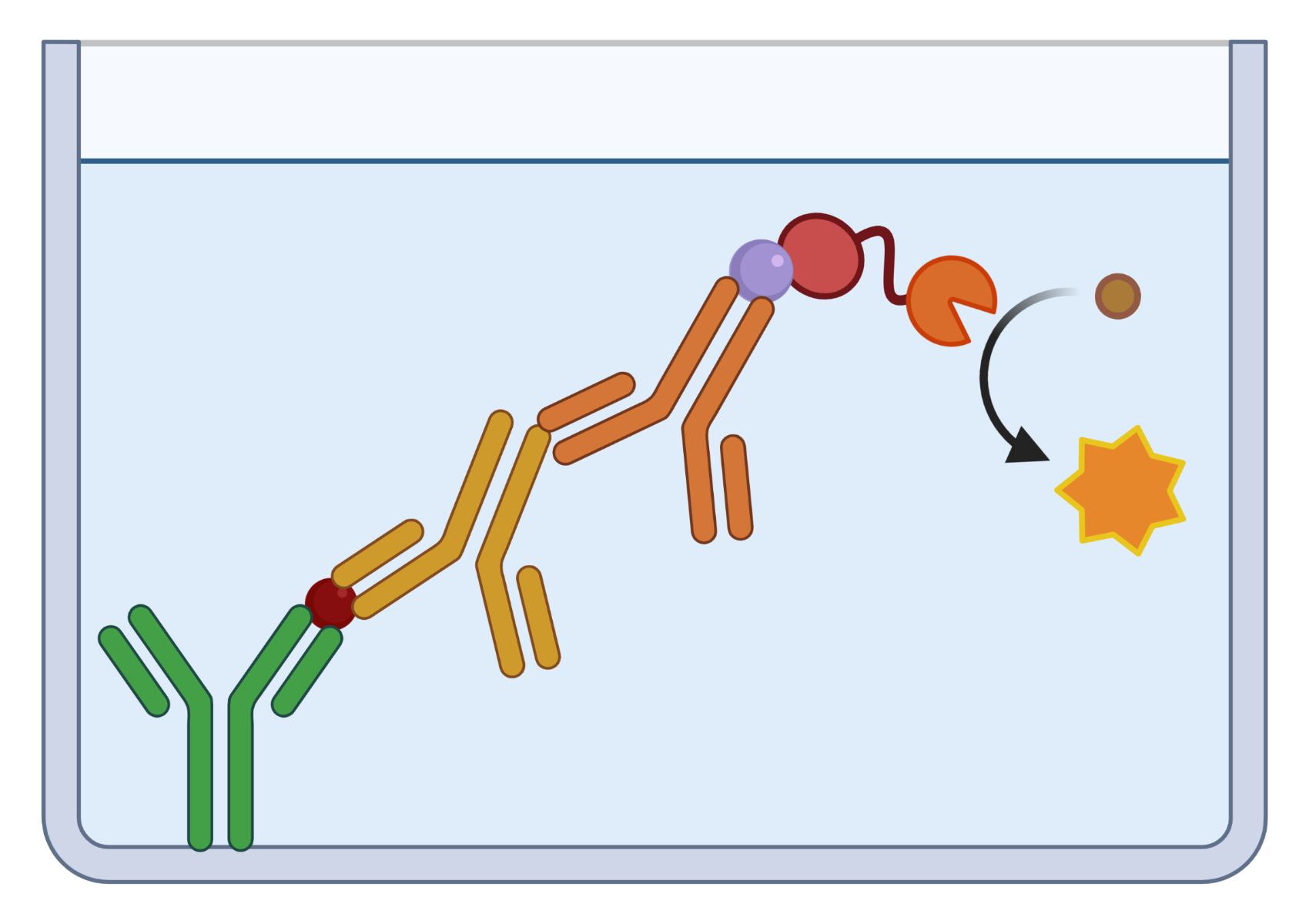ELISA Kits
What is ELISA (enzyme-linked immunosorbent assay)?
Enzyme-linked immunosorbent assay, also known as Enzyme-Immunoassay (EIA) is a biochemical technique to detect and quantify the presence of antigens, hormones, and antibodies. In an ELISA, the antigen (target macromolecule) from the sample to be tested is immobilized on a solid surface (microplate) and then a matching antibody is applied which is linked to a reporter enzyme. Detection is accomplished by measuring the activity of the reporter enzyme via incubation with the appropriate substrate to produce a measurable product.
OriGene offers hundreds of ELISA kits in immunometric assay formats. These kits allow specific, quantitative measurements of disease-related proteins, including cytokines, chemokines and signaling targets.
Types of ELISA


Indirect ELISA - It is a two-step detection method. Similar to direct ELISA, antigen is immobilized to the plate. The primary antibody specific for the antigen binds the target, and a secondary antibody binds to the primary antibody for detection. OriGene produce high quality, ELISA applicable primary or HRP/AP/biotin conjugated secondary antibodies for you to choose to construct your assay.

Sandwich ELISA - This method uses two types of antibodies: 1) Capture antibody 2) Detection antibody. The capture antibody is coated on the plate; this binds to the antigen which in turn binds to the primary antibody for detection. OriGene offer sandwich ELISA kits in either conventional or Luminex assay platform for wide-ranged selected targets to meet your research purpose.
| Assay Kit Resources |

